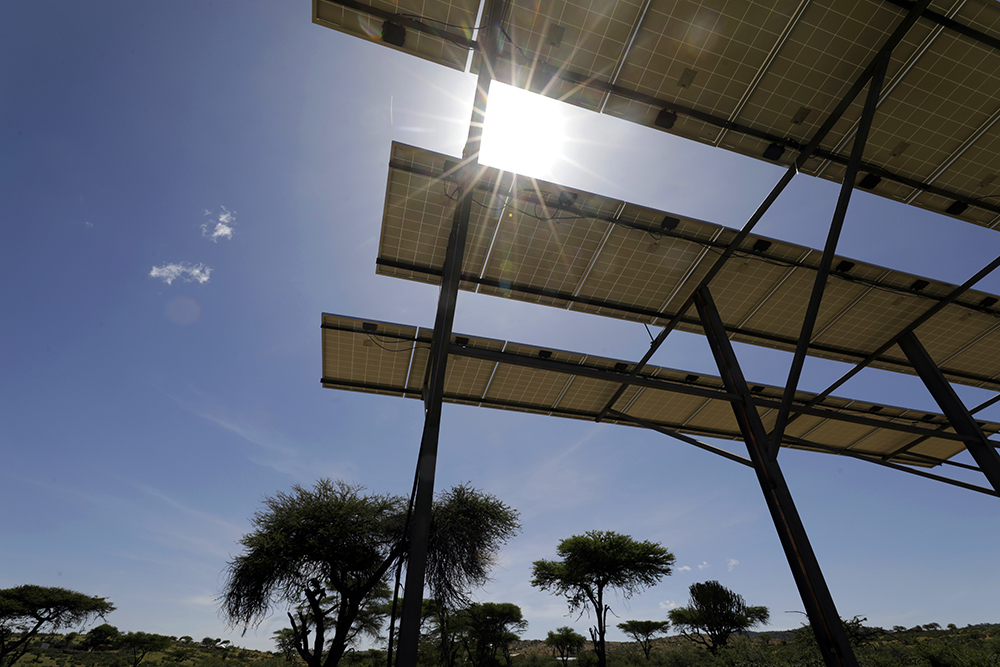Finland invests in climate diplomacy ahead of summits
The year 2021 will be a “super year” for climate change and biodiversity. Finland's own ambitious climate objectives are internationally credible and open up plenty of opportunities. Minister for Foreign Affairs Pekka Haavisto and Minister for Development Cooperation and Foreign Trade Ville Skinnari discuss the prospects.

The role of international climate diplomacy will grow in 2021. The USA has resumed a leading role as its promoter. Significant climate neutrality pledges have been made by many parties, including the EU, China, Japan, South Korea and South Africa. The Conference of the Parties (COP26) to the UN Framework Convention on Climate Change will be held in Glasgow in November 2021, to be followed by the Conference of the Parties (COP15) to the UN Conference on Biological Diversity in China.
Minister for Foreign Affairs Pekka Haavisto and Minister for Development Cooperation and Foreign Ville Skinnari discussed the Foreign Ministry’s Action Plan for Climate Smart Foreign Policy at their meeting with journalists at the beginning of February. The fields covered in the Action Plan include security policy, trade policy, development policy, country branding, and Nordic and Arctic cooperation.
Demand for electrification and circular economy experts
Finland has a long history and extensive expertise in efforts to mitigate climate change: Unlike many other industrialised countries, Finland was climate neutral in the 1950s. Our target is now that, at best, we would be the first climate neutral welfare state in the world.
According to Minister for Development Cooperation and Foreign Trade Ville Skinnari, Finland is a strong advocate for climate diplomacy as part of the European Union (Team Europe: build back better and greener), in its bilateral relations and, of course, in the UN. Finland has put to good use its lead role in the World Circular Economy Forum (WCEF/SITRA) and in the Coalition of Finance Ministers for Climate Action.
“Finland has potential to contribute in many fields, ranging from sustainable solutions in the manufacturing industry to bioeconomy and the electrification of societies. In concrete terms, we are able to offer various technological solutions, using for example robotics and sensors,” said Minister Skinnari.
In climate change adaptation, Finland has state-of-the-art expertise in meteorology. In collaboration with experts from the Finnish Meteorological Institute, Finland has funded the development of the capacity of hydrometeorological institutes in more than 50 developing countries. The package covers meteorological observation and measurement technologies, preparedness for extreme weather incidents and, in the event of a disaster, assistance to victims.
The USA and the EU in the lead
According to Foreign Minister Haavisto, in climate smart foreign policy, active countries ramp up others. “At a teleconference with former US Secretary of State John Kerry, currently US Special Presidential Envoy for Climate, held a couple of weeks ago, EU foreign ministers keenly listened to the Special Envoy’s message about accelerating climate diplomacy. This opens up opportunities for us also in the Arctic region. In EU climate diplomacy, Finland belongs to the group of the most ambitious countries. High Representative of the EU for Foreign Affairs and Security Policy Josep Borrell is keeping the issue high on the agenda, and the matter is a regular item of discussion between EU foreign ministers.”
“It is clear that climate has a direct impact on hard security everywhere from the Middle East to Africa or, for example, in Yemen. I personally saw this in Darfur in Sudan and these shifts are only the beginning. The importance of climate diplomacy is accentuated now that the Paris Agreement is moving to its implementation stage. The link between climate change and biodiversity is important.”
Minister Skinnari noted that climate change adaptation is economically sensible but more funding is needed, especially private funding. Based on the UN’s rough estimate, the implementation of the 2030 Agenda requires USD 2,500 billion more funding, but the world’s combined ODA is only EUR 150 billion a year. Finland has raised its own climate funding, including development policy investments, which support private sector investments.
- Read more about the Foreign Ministry's climate smart foreign policy
Inquiries: Jan Wahlberg, Foreign Ministry’s Ambassador for Climate Change jan.wahlberg@formin.fi, tel. +358 295 350 045
